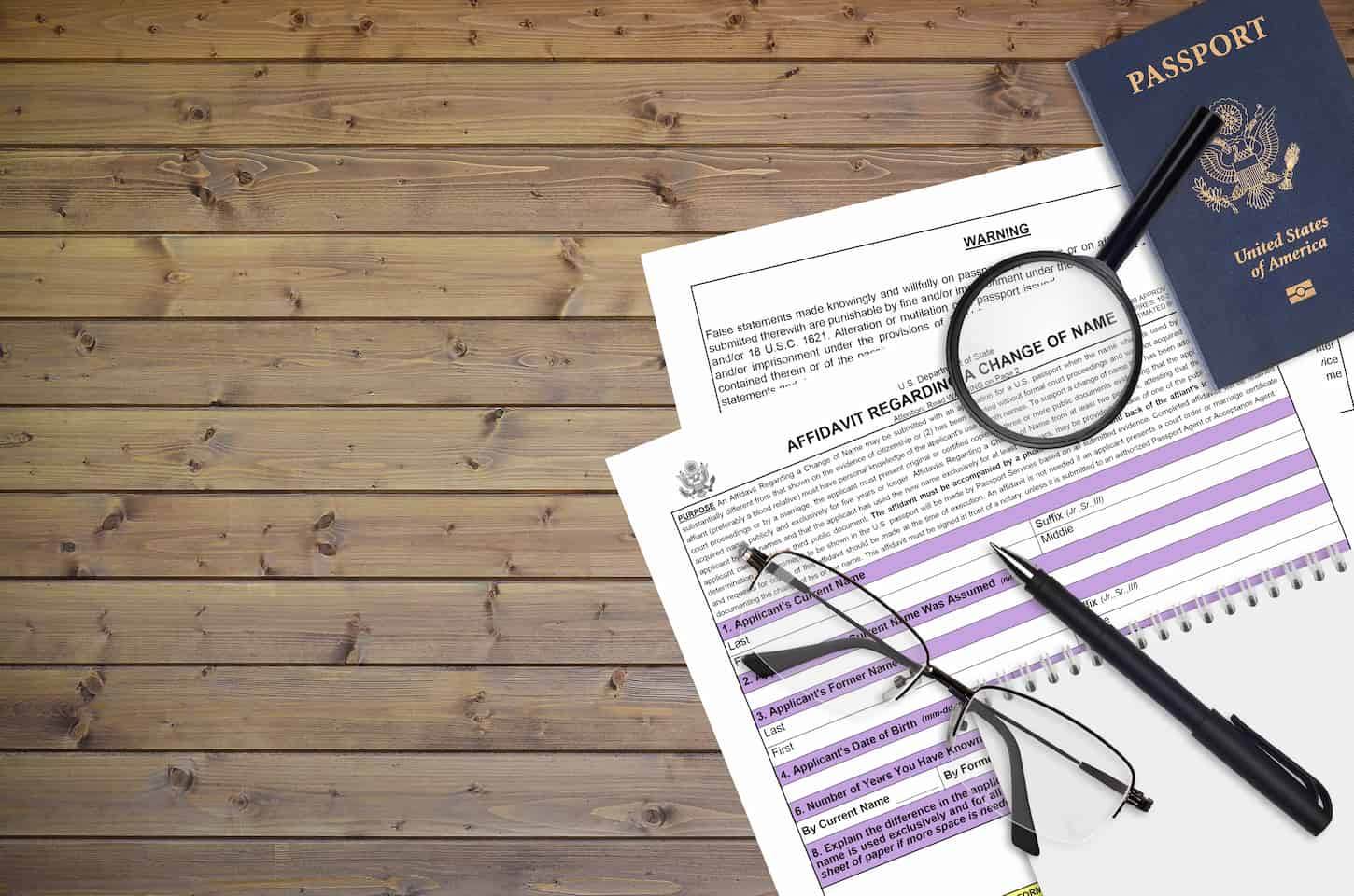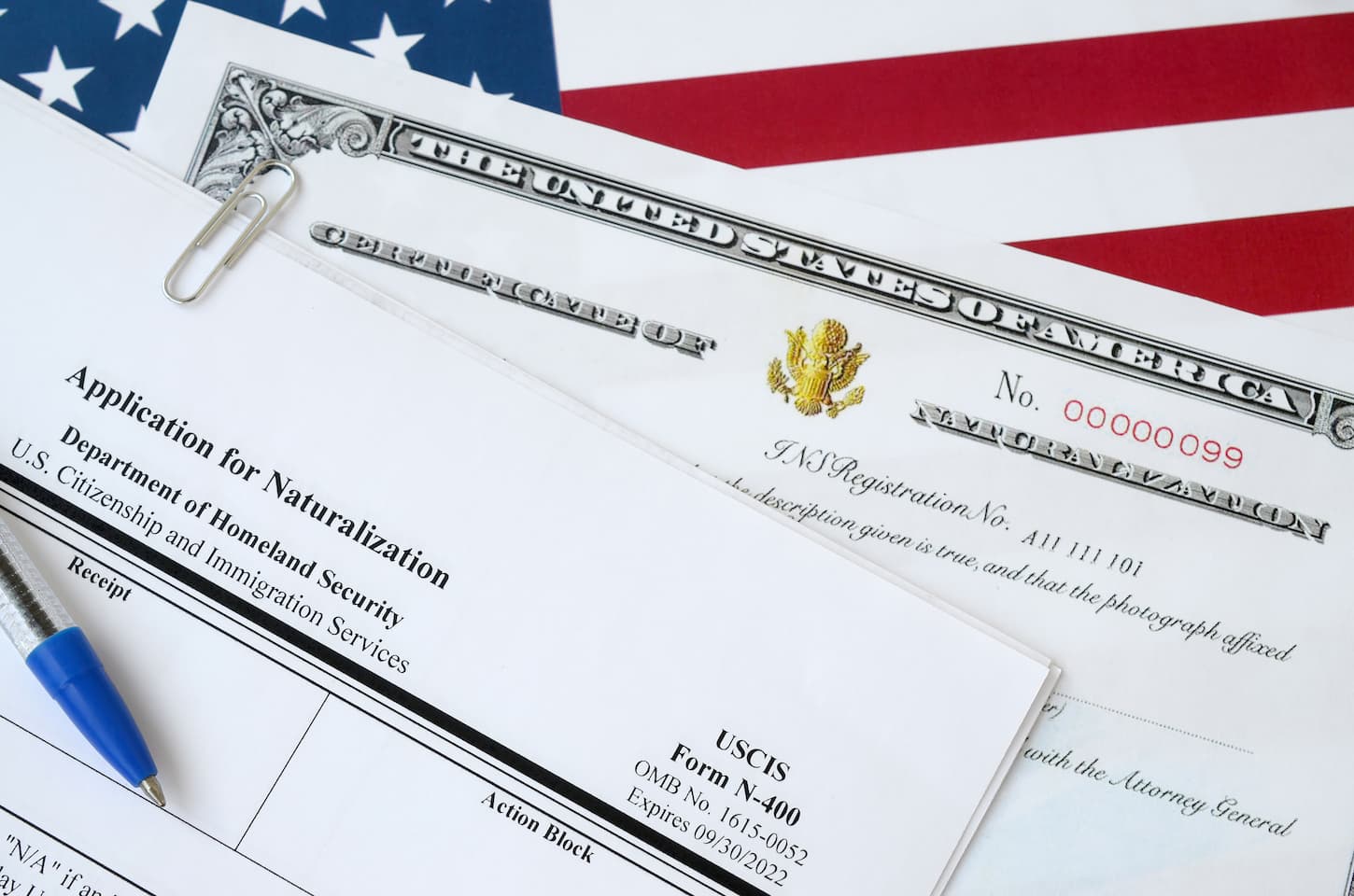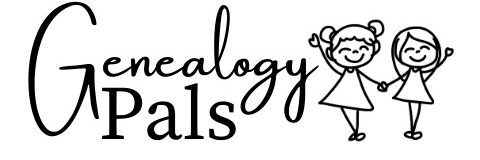Why did our ancestors change their names? They changed their names for several reasons, making it harder for us to find them. So, let’s put on a detective hat and channel our inner Hercule Poirot to get to the bottom of the case of finding an ancestor who changed their name.
Finding an ancestor who changed their name can be done by asking family members, searching through naturalization papers, obituaries, different spellings, common surnames, court records, newspapers, and creating a genealogical timeline.
Let’s go ahead and answer the question of why anyone would want to change their name. What was their thinking behind it?

Why Did My Ancestors Change Their Name?
Our ancestors may have changed their name for any of several reasons:
- Spelling and pronunciation
- Illiteracy
- Requirement
- Two families had the same name
- Discrimination
- Anglicization
- Marriage
- Adoption
- Personal preference
- Legal issues or reasons
Finding an ancestor who changed their name can be challenging, but it is possible. Several strategies can help us with our search, and in this article, we will disclose them.
Our ancestor’s last name, also known as a family surname, is completely different than our current family surname. We like to imagine that every successive generation has the same surname – but unfortunately, the reality is much different. However, it is remarkably interesting.
Reason #1: Spelling and pronunciation
The reason our ancestors changed their name might be the spelling and pronunciation, or it could be related to a nickname’s spelling (that could be totally different than their actual name’s spelling).
Our ancestors changed their names upon arrival in a foreign country because it was hard for other people to spell or pronounce them. This was common then, and it’s even common today.
They also had nicknames – so it’s been a lot of fun tracking them across the years.
When moving to a new country, people want to fit in better. To do so, they usually simplify their family surname or otherwise alter it so it relates more to the new country’s pronunciation and language.
Here’s a backward example: we gave our third son a very Scandanavian name to honor that heritage, but we pronounce his like Americans -because we are Americans, and we knew it’d drive him bonkers correcting people on the pronunciation for his whole life.
Reason #2: Illiteracy
The further back into the past we go, the more likely our ancestors could not read and write. Most of them only knew how to pronounce their names but did not know how to spell them.
So, when giving their names to clergypersons or other officials, the individual would write the name the way it sounded to them.
Even if our ancestors memorized the spelling of the name, it is highly unlikely the clergymen or other officials bothered to ask them how to spell it.
Reason #3: Requirement
Ancestors who came from countries such as Ukraine or Belarus with alphabets other than Latin had to transliterate their names, forming many variations on the names.
Reason #4: Two families had the same name
It wasn’t uncommon for two families to share the same name in a village. One family may have decided to change their name to distinguish themselves from the other family.
Reason #5: Discrimination
Sad to say, ancestors used to change their names due to fear of discrimination because of their religion or nationality. The most known example is the Jewish people who faced antisemitism.
Some officials (like at immigration intake ports such as Ellis Island) may also have changed a family’s name or spelling due to discrimination or bias – whether intentionally or not.
Reason #6: Anglicization
Some ancestors decided to anglicize their names. Reasons could be as mentioned above – discrimination, misspelling, and pronunciation.
Most people changed their names to escape their past and start over, particularly if they left their country because of some sort of persecution.
I mean, seriously. If it were even 50 years ago and I were fleeing somebody who wanted me dead, an easy way to lose them would be to change my name and move to another country.
Reason #7: Marriage traditions
In some cultures, it’s common for one marriage partner to take on the other partner’s surname. Some cultures hyphenate, while others don’t do anything.
You’ll want to be familiar with the cultural, religious, and regional practices with regard to marriage and surname changes for the areas and people you’re searching for.
For example, if I were to look for a great-great-great-grandmother in New England, I’d want to look for both her married and maiden names in the various records. Ideally, I could find a marriage certificate that gives me both!
Reason #8: Adoption
Adoption is an amazing way to join people into families. Some people may have been required to change their surname (and/or also their first name) related to adoption.
Reason #9: Personal preference
Other people may have changed their names simply because they wanted to. This could be for personal reasons or in combination with any of the above reasons.
For example, I’ve got a distant cousin who legally changed their last name to their mother’s maiden name for personal reasons. And we all support them in that.
Here’s another example that ties into the next reason, too. Some of my ancestors regularly gave different name spellings to government workers during the census due to a mistrust of governments in general. They weren’t in trouble, but they didn’t want to be tracked.
Reason #10: Legal reasons or problems
Some folks changed their surnames (and/or first names) related to legal reasons or issues.
For example, perhaps they were running from the law and so changing their name was a survival tactic so they could stay out of jail!

How Do You Find Someone Who Has Changed Their Name?
Ancestors who have changed their names may be found through genealogical records, such as obituaries, naturalization papers, and court records. Records exist, and ancestors can be traced, but it takes patience and detective work.
Given that many name changes were not proper or official, it can be challenging to find our ancestors. We have prepared several strategies we can start with – let’s investigate this together.
- Ask our family: Start by asking a family member about the family history – write down everything. Check with family members about their family names when they arrived in the U.S. This is a crucial step to make sure we are on the right track. Don’t forget to look for similar or alternate spellings!
- Search for naturalization papers: These papers often register other names our ancestors used. Naturalizations starting in the 1900s usually include other names. Don’t forget to check the passports too.
- Look at obituaries: They are often the best way to find names our ancestors used. Every so often, siblings or relatives adopt different names which could be mentioned in the obituary.
- Trace the family through the census records: Sometimes, tracing your family through the various censuses (after they arrived in the USA) can help you backtrack how the family names and spellings changed over the years. It can give you some awesome insights into working further back in time!
- Find appropriate ethnicity resources: Find out if any ancestors were in churches or ethnic clubs. Those records could be of immense help. Because they were around kinfolk, there was no need to change their name when around them.
- Another thing worth checking out is the ethnic newspapers. Foreign language and ethnic newspapers are great sources of information also.
- Search for different spellings or use the country’s alphabet: If an ancestor’s country used a different alphabet or spelling, a translation could help a lot to clarify the name change.
- Court records: There is a possibility that our ancestors might have changed their names legally. Check the laws back when it was required to change their name officially. Every state has (and had in the past) different regulations.
- Build a genealogy timeline: We strongly encourage trying this method. Create a genealogy timeline to see precisely when and where something was happening and to whom. This way, we can narrow down the information and save ourselves a lot of time.
- Verify all findings: This is the last step of the investigation. After we have found our ancestors, it is time to verify we have found the right person. Collect as many documents as possible and correlate the facts and the evidence.
Remember, too, that just because one document has things right or wrong doesn’t make it a fact. Errors happen – because the people who made the documents weren’t perfect! That’s why we need to verify things as much as we can.
Pro tip: don’t forget to cite your sources so you can find them again in the future!
How Do I Found My Ancestors Without Records?
We can find our ancestors even without any records. Here are three methods for doing that:
- Search old newspapers
- Research neighbors
- Use family naming patterns
Some ancestors won’t have any records leading to them. This is a suitable time to be creative in our search. Some ancestors were private people, some lived in rural and isolated places, and some lived in areas where courthouses were burned down with all the records and documentation.
Tip #1: Search for old newspapers
If we know the place where our ancestors lived, we can look for the local newspaper from that area. Many genealogical websites have newspapers in their databases online going back hundreds of years to make this easier.
It’s a clever idea to try to find information about our ancestors in old newspapers. The search shouldn’t be limited to only the places our ancestors lived; we should also check out the surrounding counties.
Sometimes the family narrative gets the place wrong – and that’s okay. Sometimes location boundaries change, too! So don’t feel bad expanding the search.
If the newspapers can’t be found online, we recommend contacting the newspaper offices directly and asking them if they keep old editions. If they do, you will need to go there in person and spend some time searching through old newspapers.
Old newspaper archives can also be commonly found in nearby university libraries and state record archives.
Want to find old newspapers? Read our article: How to Get Old Newspapers: 17 Places to Look!
If any document such as a birth announcement, obituary, or marriage announcement is found, it will be worth it.
Tip #2: Research neighbors
Back in the day, the community was important. People often create close relationships with their neighbors. Marriages between neighbors’ children were common, primarily in rural areas.
It’s important to research an ancestor’s neighbors if not successful in finding any direct information about an ancestor. Research the people who lived next door and the people who lived in the same geographical area.
It’s possible to find an ancestor’s name mentioned in land records, a neighbor’s will, and church records. Another possibility is that a neighbor’s diary could be discovered. People in those days wrote in diaries often. We might get lucky, and our ancestors’ names will be mentioned in a diary.
Tip #3: Use family naming patterns
Examine naming patterns within the family. Today, the tradition of naming children after grandparents and other relatives is still popular. In the 18th and 19th centuries, it was the most common way of naming children.
If we look at the names of our ancestors and the names of their children, we can see the pattern.
Don’t forget to check the middle names. During the 18th century, they were used occasionally. In the 19th century, they were common.
Middle names are important in this case because they were used to honor a grandmother’s maiden name, grandfather’s first name, or any other relative.

How Far Back Can You Trace Your Ancestors?
How far back we can trace our ancestors depends on many factors such as race, religion, social class, culture, place of birth, and luck. To find a long ancestral line, reliable evidence and documentation must be reliable.
The oldest traceable ancestry we know about is the Chinese Kang clan. It documents the ancestry lineage of more than eighty generations, over 2500 years (and some say 5200). The family tree includes over two million people, and one of them is the Chinese philosopher Confucius.
You can read more about the oldest family lines in our article here, as it’s too much to recap right now: The 13 Longest Family Trees Go Back More Than 2500 Years!
But how far is too far? Every genealogist wants to make sure their research is accurate. It is possible to build a family tree as far back as we want to, but will it be accurate?
We can trace our ancestor’s hundreds or even thousands of years back in theory. This might happen to a handful of lucky individuals.
Genealogical research relies on written sources. Official documentation is a modern-day practice. Unfortunately, in the 19th century, keeping civil records was not mandatory in most countries. Those who have common surnames will have difficulties tracing their ancestral lineage.
We recommend finding a professional genealogist to help with that kind of research. They have the skills to find translated texts, descendants, documents, and other information that may be scarce.
Consideration #1: Geographical area
Tracing ancestors far back will depend on where they lived. Some countries have a long tradition of censusing the population, like Iceland, where you can go back twenty generations.
On the other hand, some countries are newly established, and it will be harder to find records.
Consideration #2: Culture and religion
People often get lucky to find an ancestor’s name in church records. But then again, this could be an obstacle depending on what religion they practiced (if they were religious at all) and what culture they came from.
In certain parts of the world, attending church was required, while in others, it was not.
Consideration #3: Social status
If an ancestor belonged to an upper economic and social status, we are in luck. Merchants, royalty, and artists are usually independently researched, which means we have more available information on them.
Consideration #4: DNA testing
DNA testing can assist in searching six to eight generations before us, but it won’t help us find out who our 12th great-grandfather’s biological mother was. But it does help in building the foundation of our family tree.
Consideration #5: Non-paternity event
Some of our ancestors are not related to us. Sometimes, parents raise a child that is not biologically related to them. In some cultures, this happens more than in others. This occurs in roughly one out of one hundred births.
Consideration #6: Luck
If we are lucky enough to have notable and famous ancestors, then learning more about their families, identities, and place of birth will be easier, even if they are fifteen generations back.
However, if our ancestors were “average Joe“ and lived in an isolated rural area, the search would be difficult.

Key Takeaways and Next Steps
Most of us have at least one family member who changed their name. There are many reasons why a person would want to change their name.
Finding ancestors who changed their names is demanding work but also interesting. Discovering our family’s history is satisfying and can be comforting.
Keep in mind that finding an ancestor takes time. Usually, it takes more than one record to provide an accurate answer. When we have exhausted the traditional genealogical records, there are other methods we can try.
Hiring a professional genealogist is a clever idea if we find the investigation too daunting. They are experts in this field.
You can read more about hiring a genealogist in our article here: When Should I Hire a Genealogist? What You Need to Know Now!
Or, if you’d like our help, then use our help page to see if Breanne has some availability to help you directly.
Learning more about our ancestors is rewarding – finding out who they were, where they lived, and what happened to them is like time travel through our family history. Put the time and effort into the research and be open to accepting any discoveries.
Resources
When learning about genealogy, it’s important to learn from various reputable sources. These are the sources used in this article and our research to be more informed as genealogists.
- Findmypast. “Tips and Tricks for Handling Name Variations in Family History | Blog.” Findmypast – Genealogy, Ancestry, History Blog from Findmypast, www.findmypast.com/blog/help/name-variations. Accessed 19 May 2022.
- Lee, Devon Noel. “Stop Asking Genealogists How Far Back Have Traced Their Genealogy.” FHF Group LLC, 31 Oct. 2021, www.familyhistoryfanatics.com/how-far-can-you-go-back.
- McDermott, Marc. “How Far Back Can You Trace Your Family Tree?” Genealogy Explained, 24 Feb. 2022, www.genealogyexplained.com/how-far-back-can-you-trace-your-family-tree.
- National Geographic Staff. “8 Tips to Help Find Your Family Tree.” Travel, 4 May 2021, www.nationalgeographic.com/travel/article/genealogy-heritage-travel-roots-tips.
- Neaves, Jessica. “11 Smart Strategies For Searching For Ancestors Who Changed Their Name.” Heritage Discovered, 19 May 2022, www.heritagediscovered.com/blog/11-smart-strategies-searching-ancestors-changed-name.
- “The Best Free Genealogy Websites.” Who Do You Think You Are Magazine, 17 May 2022, www.whodoyouthinkyouaremagazine.com/getting-started/best-free-genealogy-websites.
- “What to Do When Your Ancestor Changed Their Names?” FHF Group LLC, 1 Nov. 2021, www.familyhistoryfanatics.com/ancestor-changed-their-names.
- “Why Did My Ancestor Change His Name?” ThoughtCo, 16 Feb. 2021, www.thoughtco.com/my-ancestor-changed-his-name-1422655.
- “Why Searching for Your Ancestors’ Full Names May Be the Worst Way to Find Them.” Family History Daily, 5 Sept. 2020, familyhistorydaily.com/genealogy-help-and-how-to/no-name-search.

